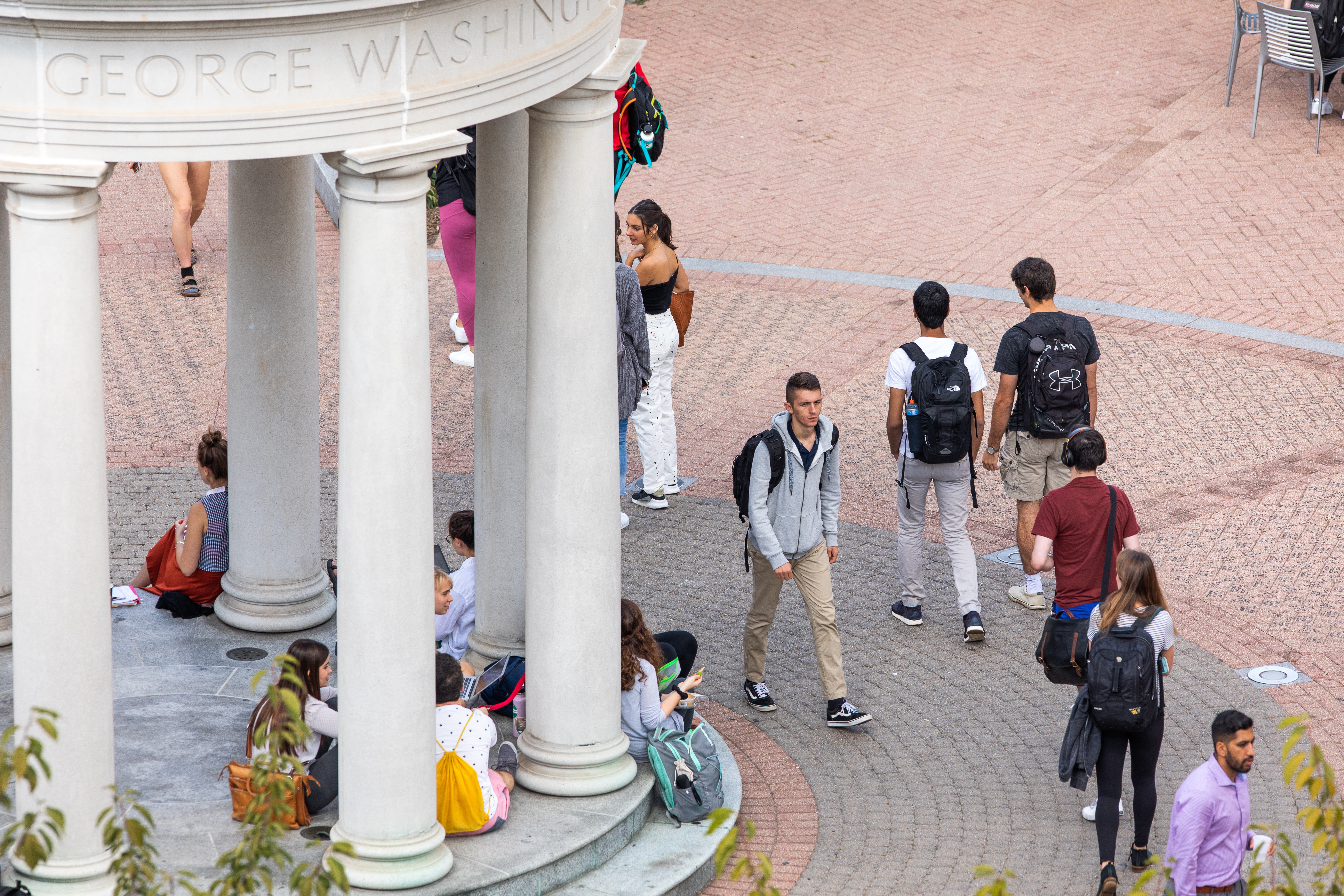Dear Members of the George Washington University Community,
In the President’s welcome-back letter last week, we shared that we would soon be unveiling a comprehensive plan that builds on the lessons learned over the last several months and lays a foundation for positive growth in the future. Today, we are pleased to announce the launch of GW’s plan for Strengthening Our Community in Challenging Times.
For many of us, the last few months have been difficult in deep and unexpected ways. The Israel-Hamas war has directly impacted many members of our community and exacerbated existing fissures in the GW community, the nation, and the world. On campus, a rise in antisemitism and Islamophobia has underscored the need for safer and more supportive campus environments. Amid these heightened tensions, the university’s commitment to academic freedom and the protection of free speech has been put to the test.
While these events were unfolding, so were conversations and discussions. Since October, the GW leadership team has met with countless students, families, faculty, staff, alumni, and university partners. Many of these conversations were tense and difficult. But they were also enlightening and productive. We have personally come away from each with an even deeper understanding of the complexity of the issues we face and the depth of concern many in our community feel. Each interaction has underscored the unique role we, as a university community, should play now and in other times of crisis and uncertainty.
We know the issues we face today can feel impossible to navigate. But these moments of uncertainty are exactly the time to reinforce, not abandon, our principles.
For more than 200 years, GW has been guided by the foundational principles of free inquiry, intellectual rigor, open dialogue, honest debate, and mutual respect. Our enduring commitment to these core tenets has made our university one of the nation’s premier academic and research institutions, with a reputation for producing the world’s leaders and changemakers. And it provides a framework that allows us to engage on difficult topics with empathy and integrity.
Informed by these principles, our plan outlines three broad focus areas:
Fostering productive dialogue to deepen our knowledge of critical issues and to enhance shared understanding and empathy for one another. As a leading institution of higher education located in the heart of the nation's capital, GW has always challenged our students, faculty, and staff to engage with the many critical and controversial issues facing society through free inquiry, intellectual rigor, open dialogue, and honest debate. However, that engagement has become more challenging in an era of extreme polarization and the weaponization of social media. The initiatives in this section will support our community in once again modeling productive, robust civil discussions across complex issues. These can be difficult ideals to achieve, but it’s in such times when they are most critical.
Strengthening partnerships and support for our community, especially those most immediately impacted by antisemitism and Islamophobia. All members of our community deserve to be treated with respect within an environment that is safe and secure, even and especially when there is deep disagreement about important issues. This section of the plan strengthens the resources available to those directly impacted by the Israel-Hamas war, antisemitism, and Islamophobia. It also outlines GW’s enhanced and renewed religious and interfaith programming more broadly. One of this section's most critical components focuses on enabling our students' direct engagement and feedback through student-organized and student-led commissions on antisemitism and Islamophobia.
Ensuring our university’s policy framework is comprehensive, consistent, and responsive to the dual imperatives of honoring free speech and creating an environment where all are free to learn. The past several months have revealed opportunities to balance these critical aspects of our university with greater consistency and transparency. A commitment to community and mutual respect alongside a robust environment of academic freedom, free expression, and freedom of speech should run through all GW policies, and this section outlines plans to strengthen these elements of our university and community life.
Under each focus area, we have shared initiatives, activities, and events intended to foster meaningful engagement across our community and support the important work already underway. To help clarify GW’s position on academic freedom and free speech, we have also prepared a separate website that addresses both our free speech commitments and our approach to contested questions around the topic.
This plan, while comprehensive, should also be thought of as a starting point, and we look forward to sharing updates as it evolves. We want to build upon this foundation throughout the semester with participation from all of you. As we continue to have conversations with the GW community, we will expand and improve on these efforts. Together, we will define a community ethos equal to our aspirations and our history.
As a university, GW’s mission is to equip students with the knowledge, tools, and resilience they need to meet the world’s challenges with confidence and understanding. Fulfilling that role is never more vital than in times of conflict and change. We are grateful for the courage and candor this community has displayed over the last several months, and we invite you to join us in building a stronger GW.
Sincerely,
Ellen M. Granberg
President
Christopher Alan Bracey
Provost and Executive Vice President for Academic Affairs
Professor of Law


